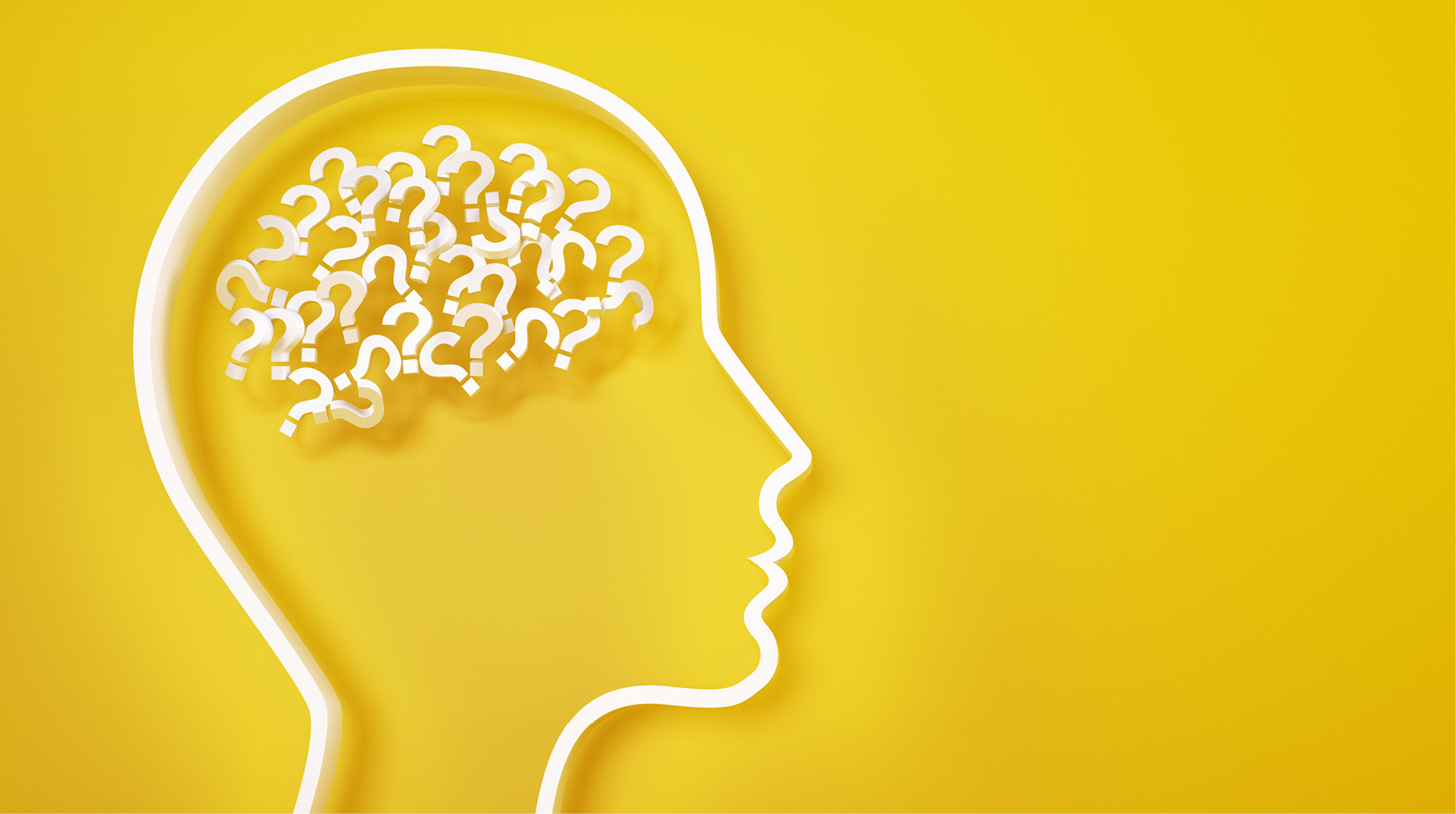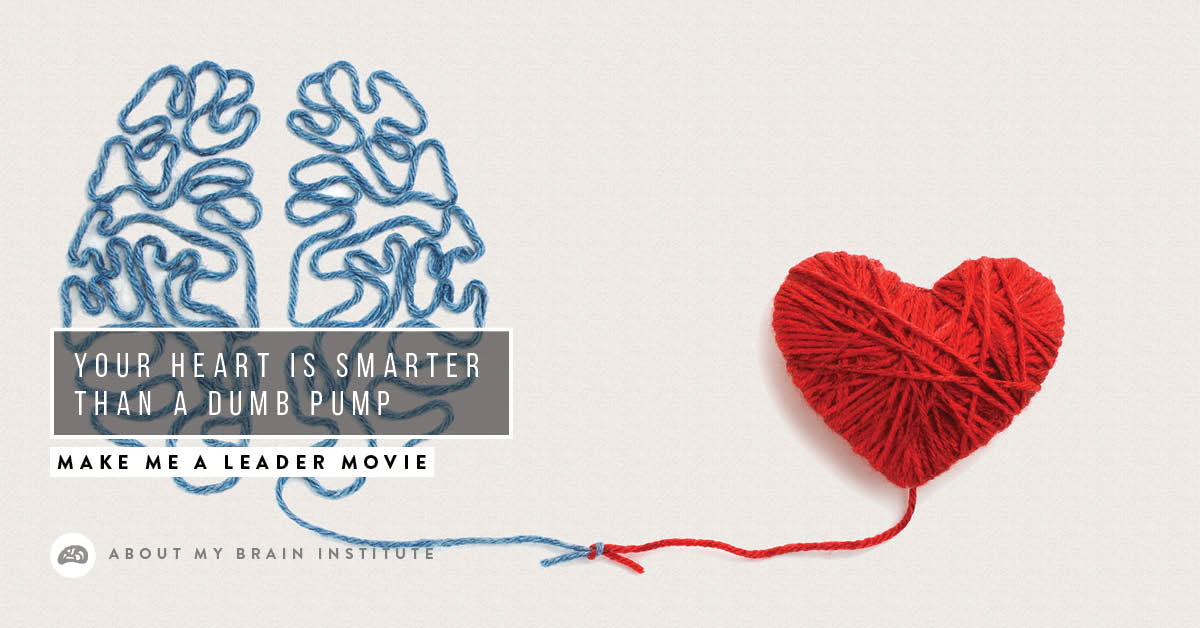The Perils Of Ignoring The Health Of Our Brains
Many leaders take the time to strengthen their physical body. They exercise at the gym, take the stairs instead of the lift, or walk a few rounds of the building on a lunch break. Or perhaps they play golf, hike, or swim. But, how many leaders take time to work on their brain?
Physical signs of health are usually overt and easy to see. A well-rested person will be alert and ready to go, instead of sluggish, baggy-eyes, and yawning. Healthy food contributes to a healthy body, and while a ‘cheat’ very occasionally is alright, someone who usually chooses fruits and vegetables over high-fats and carbs will be healthier. A toned, lean physique may look healthy at a glance, but the mind underneath may not always be as robust.
The Cracks Will Start To Show
Leaders who value physical health may not have the same dedication toward brain health. This is not necessarily because of deliberate oversight, but rather because many leaders do not understand or acknowledge the importance of brain health.
A human cannot function on a few hours of sleep and coffee for very long. Even the most dedicated and most driven people will eventually fall under that kind of duress. Elon Musk, a billionaire entrepreneur, recently revealed his own struggles with stress and psychological highs and lows.1 When the people in charge push themselves so hard, others will try to keep up, which will ultimately result in failure.
Recognising great leadership means focusing on more than what is seen on the outside. The expression, “beauty is only skin deep” holds true for leadership because a poorly functioning mind will affect everything--emotional health, mental health, and eventually physical health.
When Good Leaders Lose Their Way
Climbing the corporate ladder is hard work. Somehow, it seems like everything should be “more, more”. More money, more bonuses, more perks, more for shareholders, more fame--all of these can be intoxicating. Instead of leading to make changes, the goals subtly start to shift.
When the brain isn’t healthy, this power shift can be even more consuming. The atmosphere becomes rife with stress and anxiety, with few opportunities for innovation and creativity. A poll of 800 managers and employees in various industries found that 38% of the respondents who were treated rudely lowered their quality of work, and 48% decreased the effort they put in at work.2
Our chief want is someone who will inspire us to be what we know we could be.
Ralph Waldo Emerson
Avoid The Dark Side Of Leadership
Most leaders have the best intentions, but sometimes things go awry. Taking a step back to assess a situation is always important, especially if the environment indicates that conditions are unhealthy. Leaders should:
- Take time for self-reflection. It is impossible to improve without self-reflection. We may think we are doing a wonderful job, but stopping to honestly judge yourself is the only way to continue to grow. Neuroscience has implicated two areas in the medial prefrontal cortex (MPFC), the ventral and dorsal MPFC, that are important for reflective processing, highlighting the importance of a healthy brain.3
- Be empathetic. For some, negative social interactions can have long-lasting detrimental efforts. A negative remark tends to sting much more than a positive comment shines. Brains affected by neurodegenerative diseases (NDGs) show significant changes in empathetic behaviour, suggesting that individuals must retain the ability to experience reward and inhibit emotional responses in order to be empathetic to others.4 The supposedly healthy lives we lead may instead result in brains that resemble those affected by NDGs.5
- Take a break in nature--without work tagging along. Stress contributes to many health factors, including depression and heart disease. Relaxation is a vital way to reduce stress and improve health. A recent study examined comments on Twitter to see how people relax. A common theme was that nature is important for relaxation, consistent with the idea that being in nature can reduce stress.6
- Show gratitude. Gratitude is a positive experience that can increase happiness. Using functional magnetic resonance imaging, researchers found that subjects had decreased heart rates during gratitude intervention, compared to increased heart rates during resentment intervention. The authors suggest that gratitude intervention has a positive effect on heart rate, also increasing mental health.7
To avoid falling into the dark side of leadership, leaders must value emotional and mental health as much as physical health. Even if there aren’t visible signs of impairment, an unhealthy brain will eventually catch up to even the most well-intentioned leader.
Citations:
1. Clifford C. Elon Musk gets personal about his ‘terrible lows’ and ‘unrelenting stress’. CNBC. 2017. Available at: https://www.cnbc.com/2017/07/31/elon-musk-is-bipolar-has-terrible-lows-and-unrelenting-stress.html
2. Porath C, Pearson C. The Price of Incivility. Harvard Business Review. 2013;January-February. Available at: https://hbr.org/2013/01/the-price-of-incivility
3. Van der Meer L, Costafreda S, Aleman A, David AS. Self-reflection and the brain: A theoretical review and meta-analysis of neuroimaging studies with implication for schizophrenia. Neuroscience and Biobehavioral Reviews. 2010;34,935-946.
4. Shdo SM, Ranasinghe KG, Gola KA, Mielke CJ, Sukhavov PV, Miller BL, Rankin KP. Deconstructing empathy: Neuroanatomical dissociations between affect sharing and prosocial motivation using a patient lesion model. Neuropsychologia. 2018;116(Pt A), 126-135. Available at: https://europepmc.org/articles/pmc5773395
5. McLennan K. Building Leaders for the Imagination Age: The Case for the i4 Neuroleader Model. About my Brain Institute. 2016;1. [White Paper].
6. Doan S, Ritchart A, Perry N, Chaparro JD, Conway M. How Do You #relax When You’re #stressed? A Content Analysis and Infodemiology Study of Stress-Related Tweets. Eysenbach G, ed. JMIR Public Health and Surveillance. 2017;3(2):e35. doi:10.2196/publichealth.5939.
7. Kyeong S, Kim J, Kim DJ, Kim HE, Kim J-J. Effects of gratitude meditation on neural network functional connectivity and brain-heart coupling. Scientific Reports. 2017;7,5058. Available at: https://www.nature.com/articles/s41598-017-05520-9
- i4 Neuroleader (353)
- Leadership & Culture (336)
- Brain Health & Wellbeing (206)
- Innovation (97)
- Performance (85)
- Our News (79)
- Collaboration (68)
- Agility (53)
- Practitioner Stories (44)
- In The Press (36)
- Make Me A Leader (33)
- Balance (31)
- Integration (30)
- Imagination (29)
- Awareness (23)
- Brain-Friendly Channel (22)
- Brain-Friendly Leadership (22)
- Communication (22)
- Curiosity (21)
- Inspiration (19)
- Intuition (19)
- Attitude (17)
- Courage (16)
- Adaptability (14)
- Case Studies (14)
- Drive (14)
- Generosity (13)
- Ethics (9)
- Mental Readiness (9)
- Influence (8)
- Retreat (8)
- Brain-Friendly Leadership (1)
- Oracle Cards (1)
- 1 November 2025 (2)
- 1 September 2025 (3)
- 1 August 2025 (5)
- 1 July 2025 (5)
- 1 June 2025 (2)
- 1 April 2025 (1)
- 1 March 2025 (8)
- 1 February 2025 (3)
- 1 September 2024 (4)
- 1 July 2024 (2)
- 1 June 2024 (6)
- 1 May 2024 (2)
- 1 April 2024 (3)
- 1 March 2024 (1)
- 1 November 2023 (1)
- 1 August 2023 (1)
- 1 July 2023 (2)
- 1 June 2023 (2)
- 1 May 2023 (4)
- 1 April 2023 (2)
- 1 March 2023 (7)
- 1 February 2023 (4)
- 1 January 2023 (1)
- 1 September 2022 (1)
- 1 May 2022 (3)
- 1 April 2022 (1)
- 1 March 2022 (5)
- 1 February 2022 (4)
- 1 January 2022 (4)
- 1 December 2021 (2)
- 1 November 2021 (4)
- 1 October 2021 (3)
- 1 September 2021 (6)
- 1 August 2021 (1)
- 1 April 2021 (1)
- 1 December 2020 (2)
- 1 November 2020 (1)
- 1 September 2020 (1)
- 1 August 2020 (1)
- 1 July 2020 (3)
- 1 June 2020 (4)
- 1 May 2020 (3)
- 1 April 2020 (4)
- 1 March 2020 (6)
- 1 February 2020 (4)
- 1 January 2020 (2)
- 1 December 2019 (3)
- 1 November 2019 (3)
- 1 October 2019 (5)
- 1 September 2019 (4)
- 1 August 2019 (4)
- 1 July 2019 (4)
- 1 June 2019 (5)
- 1 May 2019 (9)
- 1 April 2019 (9)
- 1 March 2019 (8)
- 1 February 2019 (7)
- 1 January 2019 (8)
- 1 December 2018 (5)
- 1 November 2018 (10)
- 1 October 2018 (16)
- 1 September 2018 (9)
- 1 August 2018 (10)
- 1 July 2018 (9)
- 1 June 2018 (8)
- 1 May 2018 (9)
- 1 April 2018 (9)
- 1 March 2018 (9)
- 1 February 2018 (8)
- 1 January 2018 (8)
- 1 December 2017 (6)
- 1 November 2017 (9)
- 1 October 2017 (9)
- 1 September 2017 (8)
- 1 August 2017 (10)
- 1 July 2017 (8)
- 1 June 2017 (8)
- 1 May 2017 (9)
- 1 April 2017 (8)
- 1 March 2017 (6)
- 1 January 2017 (3)
- 1 December 2016 (4)
- 1 November 2016 (5)
- 1 October 2016 (4)
- 1 September 2016 (2)
- 1 August 2016 (4)
- 1 July 2016 (4)
- 1 June 2016 (2)
- 1 May 2016 (3)
- 1 April 2016 (3)
- 1 March 2016 (7)
- 1 February 2016 (2)
- 1 January 2016 (5)
- 1 December 2015 (2)
- 1 November 2015 (2)
- 1 October 2015 (4)
- 1 September 2015 (2)
- 1 August 2015 (2)
- 1 July 2015 (1)
- 1 June 2015 (3)
- 1 May 2015 (4)
- 1 April 2015 (5)
- 1 March 2015 (3)
- 1 February 2015 (3)
- 1 January 2015 (3)
- 1 December 2014 (3)
- 1 November 2014 (3)
- 1 October 2014 (3)
- 1 September 2014 (5)
- 1 August 2014 (4)
- 1 July 2014 (5)
- 1 June 2014 (3)
- 1 May 2014 (1)
- 1 March 2014 (1)
- 1 December 2013 (2)
- 1 November 2013 (1)
- 1 July 2013 (1)
- 1 June 2013 (1)
- 1 May 2013 (3)
- 1 April 2013 (1)
- 1 March 2013 (2)
- 1 February 2013 (1)
- 1 January 2013 (2)
- 1 November 2012 (1)
- 1 October 2012 (1)
- 1 September 2012 (1)
- 1 August 2012 (2)
- 1 July 2012 (1)
- 1 June 2012 (1)
- 1 May 2012 (2)
- 1 April 2012 (1)
- 1 February 2012 (1)
- 1 January 2012 (1)
- 1 November 2011 (1)
- 1 October 2011 (3)
- 1 September 2011 (2)
- 1 July 2011 (1)
- 1 June 2011 (1)
- 1 May 2011 (1)
- 1 April 2011 (1)
- 1 March 2011 (1)
- 1 February 2011 (2)
- 1 January 2011 (4)
- 1 December 2010 (4)
- 1 November 2010 (3)
- 1 October 2010 (5)
- 1 September 2010 (4)
- 1 August 2010 (4)
- 1 July 2010 (3)
- 1 June 2010 (4)
- 1 May 2010 (7)
- 1 April 2010 (5)
Subscribe by email
You May Also Like
These Related Stories

Is It Mental Health Or Brain Health We Should Be Talking About?

Your Heart Is Smarter Than A Dumb Pump



No Comments Yet
Let us know what you think